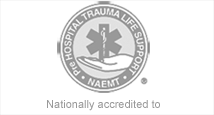News Items
- 05-Feb-2012
"ALSG approved Safe Transfer & Retrieval (STaR) course, Belfast - November 08th & 09th 2012" - 09-Oct-2011
"Survival-linX Solutions on-line Classrom & Education Centre" - 24-Sep-2011
"RIDDOR - Changes to incident reporting" - 12-Mar-2011
"Do you know what to do if a child is choking?" - 12-Mar-2011
"Anaphylaxis - recognition and management" - 12-Mar-2011
"Join use on Facebook - for all the latest discusions, first aid advice and general resuscitation information" - 12-Mar-2011
"Does your Surgery need Life Support (CPR) & Automated Defibrillator (AED) Training?" - 12-Mar-2011
"Resuscitation Council (UK) Emergency Life Support in Schools" - 04-Nov-2010
"2010 Resuscitation Guidelines - Summary of main changes" - 07-Sep-2010
"Do you have a Automated Defibrillator in your place off work?" - 24-Nov-2009
"Survival-linX Solutions gains HSENI certificate of approval to provide first aid at work (FAW) training courses." - 07-Nov-2009
"Risks of pandemic H1N1 2009 influenza (swine influenza) during cardiopulmonary resuscitation (CPR)" - 19-Oct-2008
"Are you thinking of purchasing an Automated External Defibrillator(AED) - essential infomation to assist you when choosing the correct unit." - 09-Aug-2008
"An account of the formation of the foramen ovale and how blood entering the inferior vena cava receives preferential blood streaming in the foetus." - 31-Aug-2007
"Mechanical CPR - Lund University Cardiopulmonary Assist System (LUCAS)" - 02-Jun-2003
"Significant increase in training for Health Care professionals likely to be called to assist children with trachestomy tube difficulties"
Anaphylaxis - recognition and management
12-Mar-2011
Anaphylaxis is an extreme and severe allergic reaction. The whole body is affected, often within minutes of exposure to the allergen but sometimes after hours.
What is anaphylaxis? Anaphylaxis is an extreme and severe allergic reaction. The whole body is affected, often within minutes of exposure to the allergen but sometimes after hours.
What are the symptoms? generalised flushing of the skin, nettle rash (hives) anywhere on the body,
sense of impending doom,
swelling of throat and mouth
...difficulty in swallowing or speaking,
alterations in heart rate,
severe asthma
abdominal pain, nausea and vomiting,
sudden feeling of weakness (drop in blood pressure)
collapse and unconsciousness. An individual would not necessarily experience all of these symptoms.
Why does anaphylaxis occur? Any allergic reaction, including the most extreme form, anaphylactic shock, occurs because the body's immune system reacts inappropriately in response to the presence of a substance that it wrongly perceives as a threat.An anaphylactic reaction is caused by the sudden release of chemical substances, including histamine, from cells in the blood and tissues where they are stored. The release is triggered by the reaction between the allergic antibody (IgE) and the substance (allergen) causing the anaphylactic reaction. This mechanism is so sensitive that minute quantities of the allergen can cause a reaction. The released chemicals act on blood vessels to cause the swelling in the mouth and anywhere on the skin. There is a fall in blood pressure and, in asthmatics, the effect is mainly on the lungs. What is the treatment for a severe reaction?Pre-loaded adrenaline injection kits are available on prescription for those believed to be at risk. Adrenaline (also known as epinephrine) acts quickly to constrict blood vessels, relax smooth muscles in the lungs to improve breathing, stimulate the heartbeat and help to stop swelling around the face and lips
What are the symptoms? generalised flushing of the skin, nettle rash (hives) anywhere on the body,
sense of impending doom,
swelling of throat and mouth
...difficulty in swallowing or speaking,
alterations in heart rate,
severe asthma
abdominal pain, nausea and vomiting,
sudden feeling of weakness (drop in blood pressure)
collapse and unconsciousness. An individual would not necessarily experience all of these symptoms.
Why does anaphylaxis occur? Any allergic reaction, including the most extreme form, anaphylactic shock, occurs because the body's immune system reacts inappropriately in response to the presence of a substance that it wrongly perceives as a threat.An anaphylactic reaction is caused by the sudden release of chemical substances, including histamine, from cells in the blood and tissues where they are stored. The release is triggered by the reaction between the allergic antibody (IgE) and the substance (allergen) causing the anaphylactic reaction. This mechanism is so sensitive that minute quantities of the allergen can cause a reaction. The released chemicals act on blood vessels to cause the swelling in the mouth and anywhere on the skin. There is a fall in blood pressure and, in asthmatics, the effect is mainly on the lungs. What is the treatment for a severe reaction?Pre-loaded adrenaline injection kits are available on prescription for those believed to be at risk. Adrenaline (also known as epinephrine) acts quickly to constrict blood vessels, relax smooth muscles in the lungs to improve breathing, stimulate the heartbeat and help to stop swelling around the face and lips
Management for HCPs
Adrenaline. 1:1000
Dose. > 12yrs 0.5ml, 6 - 12yrs 0.3ml, 0 - 6yrs 0.15mls
Route. IM
Repeat. every 5 minutes if required
Register
To access our members content please login here.
If you do not have access please register here to access our members section. If you have forgotten your password please click here to reset your password.
If you do not have access please register here to access our members section. If you have forgotten your password please click here to reset your password.
Contact Us
| Address | PO Box 1491 Dungannon BT71 5YF |
| Telephone: | 028 8774 6864 |
| Mobile: | 079 7662 1643 |
| Email: | info@survival-linx.com |
Site last updated 02/02/2026 20:44:00








